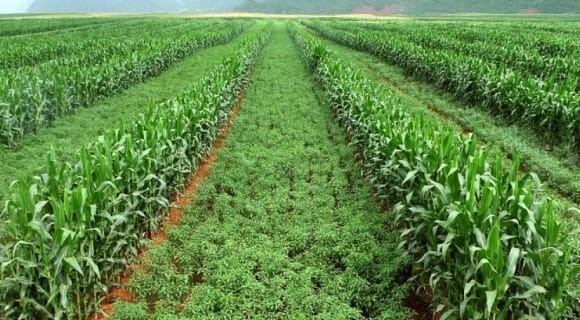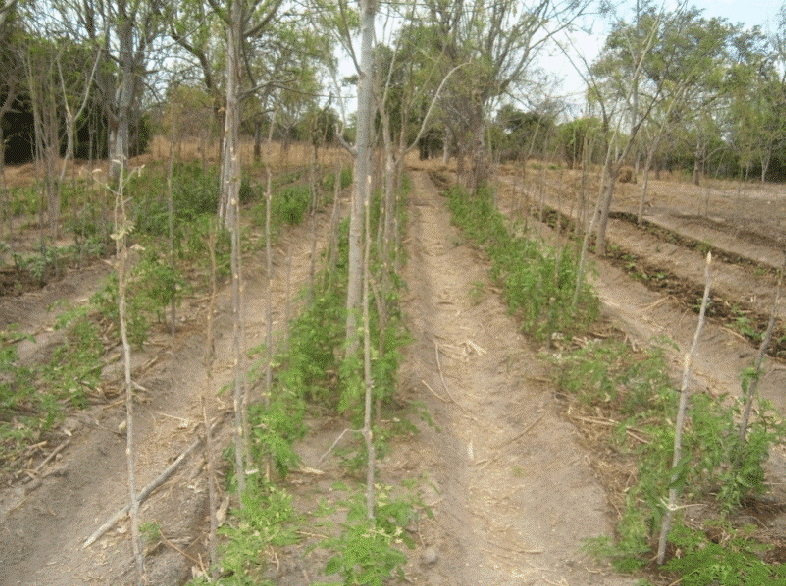The ARC team is part of a consortium of 20 European and African R&D organizations that drive the DIVAGRI (Revenue diversification pathways in Africa through bio-based and circular agricultural innovations) project, aimed at adapting seven biotechnologies to African conditions, utilizing local resources optimally, turning waste into use, thereby creating business opportunities and reducing costs.
DIVAGRI: Implementing Innovative Agricultural Biotechnologies
The project is implemented in Ghana, Namibia, Botswana, Mozambique and South Africa. The biotechnologies aim to produce clean water with a desalination greenhouse and artificial wetland; use waste to produce energy and fertiliser (biogas digester and biochar kiln); improve production (through subsurface irrigation and intercropping) and add value to agricultural products (bio-refinery).
The biotechnologies will be introduced at pilot sites and subsequently to farmers at demo sites in the five countries involved. The aim is to co-create and adapt these technologies. In addition, the international team explores business opportunities and value chains for the communities participating. The ARC is responsible for ensuring sustainable project implementation at pilot and demo sites in the five participating countries, assessing livelihoods, resources, and how livelihoods are affected by the introduction of the innovations.
Trans-Disciplinary Approach and Collaborative Development

The project uses a trans-disciplinary, participatory approach, involving end-users and partners in the co-development of solutions and business models. The ARC team, in particular, is responsible for establishing and empowering “Communities of Practice” (CoP’s) at the participating demo sites, establishing a baseline farmer profile and monitoring progress towards evaluation (Agrimetrics).
ARC-VIMP’s Role and Contributions
The ARC-VIMP is responsible for piloting all seven biotechnologies at the Roodeplaat farm and also leading the implementation of ethno-botanical intercropping technologies at all pilot and demo sites (South Africa, Namibia, Ghana, Botswana and Mozambique) (Fig. 1). The DIVAGRI work plan provides for physical engagements with each country’s project team and site representatives.
Collaborative Engagements and Progress
Dr Du Plooy accompanied Lothar Vigelahn from WISMAR University to the pilot sites in South Africa and Botswana on 7-10 May, 2023. Dr Verschoor, Dr Du Plooy and Dr Araya attended the second DIVAGRI consortium meeting in Namibia (14-20 May 2023). The meeting with 20 international partners, focused on progress reporting, engaging with partners to plan key project activities, and collectively evaluating pilot site establishment and monitoring, with accompanied collective planning.
Technology Installation and Challenges
In addition, data collection at the Ovitoto (Namibia) demo site took place. At the ARC-Roodeplaat a pilot site was installed with four of the seven biotechnologies (ethnobotanical intercropping, SLECI (self-regulating, low energy, clay installed -based irrigation), solar desalination greenhouse and biorefinery, but with the Biochar, Biogas and artificial wetland still in the process of installation.
The intercropping is combined with SLECI technology (Moringa intercropped with leafy vegetables/leguminous crops). A standard drip, subsurface drip and SLECI irrigation system was installed at the ARC, Roodeplaat pilot site in South Africa to compare the efficiency of irrigation systems in conjunction with intercropping. Black soldier flies (BSF), and oyster mushrooms are included as part of the bio-refinery.
Soil moisture measuring equipment was installed, and the water usage data for the two systems was collected. The pilot site leader was made aware of the above observations on the site. A Biochar Kiln was made by a service provider in Gaborone, but it was different from the one for Impala and was also not functioning well (leaking water and to be modified).
Progress in Botswana
At NARDI/ Impala at Francistown, Botswana a multifunctional constructed wetland is installed, but it is still to be connected to the outflow from nearby houses. The biochar kiln was built by Page Engineering, located in Broadhurst Industrial, Gaborone, delivered on-site and seems to be working well. The ARC is currently negotiating to build the same kiln by the above service provider for the Roodeplaat pilot site.
The different eco regions where the bio-based technologies will be implemented at project pilot sites and farmer field demo sites are in Namibia, South Africa, Botswana, Ghana and Mozambique.
During the visit to this site, both Mr Lothar Vigelahn and Dr Ian du Plooy presented on the site visits in a closure meeting at BUAN, with feedback to the project site leaders and management of BUAN and NARDI.

Moringa intercropped with tomatoes in Mozambique
Collaborative Site Visits and Knowledge Sharing
Individual representatives from Ghana, Botswana, and Namibia assisted with data collection for the ARC mission. Overall, the consortium meeting provided an opportunity to market the ARC’s capacity in trans-disciplinary R&D project management and implementation. It showcased the organisation’s ability to conduct scientific M&E and to provide services in international project implementation. Source: ARC-Vegetable, Industrial and Medicinal Plants, compiled by Mariette Truter Dean Oelofse Elsie Cruywagen Stephen Amoo Sunette Laurie Buhlebelive Mndzebele
